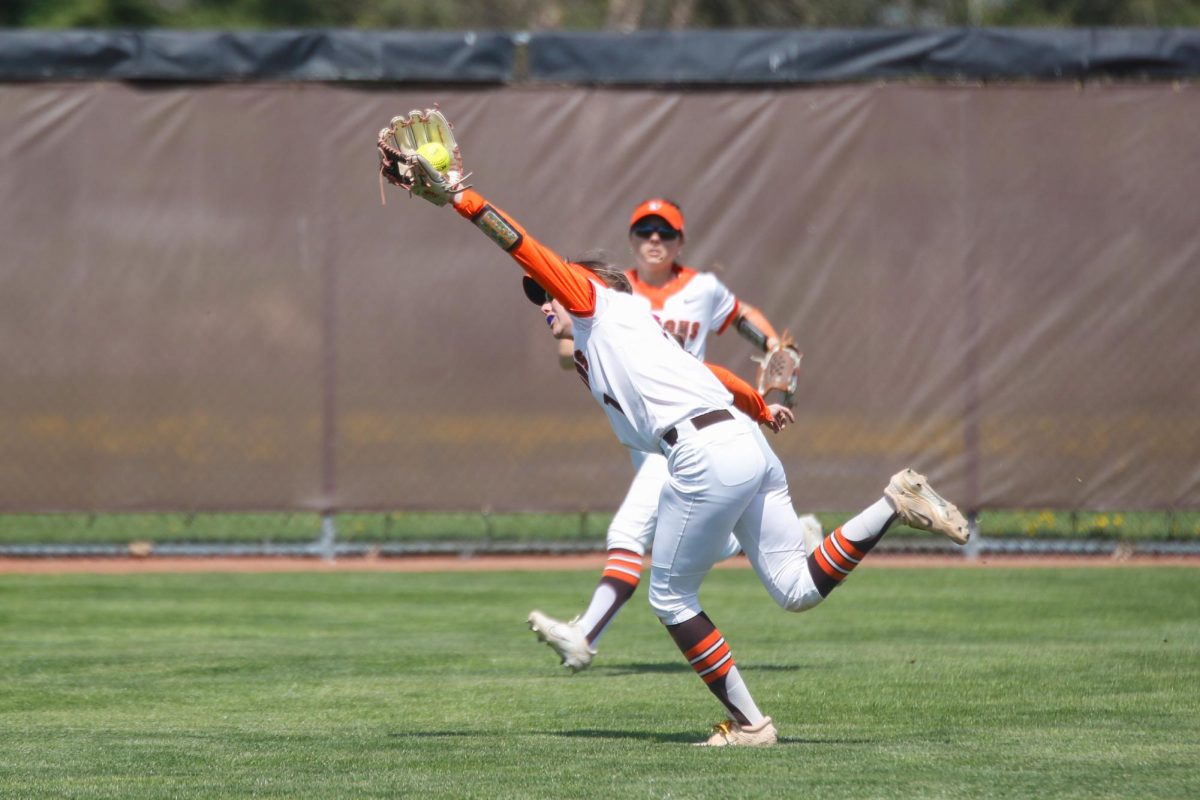The unique sounds of a 17th Century opera will soon echo through the University.
The North American premier of Francesco Cavalli’s Baroque opera “Gli Amori d’Apollo e di Dafne” (The Many Loves of Apollo and Daphne) will debut Friday in Kobacker Hall in the Moore Musical Arts Center.
Professor and chair of the Department of Theater and Film, Ron Shields, said that news of this production has received world-wide attention.
“I’m honored to be working on an opera that will be a North American premier,” said music education major Gregory Ashe, who is singing the role of Apollo. “This is a once in a lifetime opportunity to bring this music to the states in its complete operatic form.”
Ellen Gartner, a junior music education major who will be singing the role of Daphne, is excited about the opportunity.
“This entire opera is a whole new experience,” she said. “It’s a fantastic new experience that can be summed up simply as nerve-wracking.”
‘#160;
Making it current
In addition to the opera’s premier, the instruments used will be from 1640, the same year the production was written.
Vincent Corrigan, professor of musicology, composition and history, transcribed and edited a copy of the original music that was in the Jerome Library to bring it to current playing styles.
He made clef and note changes and scribal errors were fixed. He rewrote the piano, vocal and orchestra scores – a compilation of all the musical parts of the opera.
“There are some really interesting stories concerned with love accompanied by some extraordinarily pleasant melodies and dramatically effective instrument pieces,” Corrigan said.
He said that a large continuo orchestra of two harpsichords, two violas da gamba and four lutes of all sizes are being used. A gamba is like a small cello. Each lute is a different size, with the largest approximately the size of a small tree.
There is also a string component to the orchestra that includes two violins, two violas and one cello.
“The strings enhance the instrumental pool,” said Emily Freeman Brown, director of orchestral activities, music director of opera theater and string conductor for the opera.
The strings will be using Baroque style bows that belong to the University’s early music ensemble in order to better imitate the original sound.
Brown described this music as “wonderful, sonorous music.”
“This is the most collaborative experience I’ve ever had,” Brown said. “Opera is collaborative; this is even more so. There are so many people guiding this, especially because it is the North American premier.”
The merge of the University and Eastman School of Music for this production is phenomenal, Shields said.
“It is an outstanding example of how the arts faculty and students across campus can work together to do highly innovative and original work,” Shields said. “The fact that it is also a collaboration between BGSU and the Eastman School of Music is another indication of the breadth and quality of the arts available throughout BGSU student body.”
‘#160;
‘Simply beautiful’
Corrigan said that singers were “knocked off their feet” when they first heard the music, and Shields agreed.
“The music to this score is simply beautiful,” Shields said.
Musical direction for this opera is led by Paul O’Dette, the director of early music at Eastman School of Music and of its Collegium Musicum.
Brown referred to O’Dette as an international expert of Baroque music.
The Eastman Collegium Musicum will be performing the continuo sections of the opera, with O’Dette playing the lute from the orchestra pit.
“Working with Paul O’Dette is really great,” Ashe said. “He has given each singer a better understanding of the opera, and with his knowledge, he has enhanced each singer’s character.”
Translations for this opera were completed by James Pfundstein, a romance language instructor. He converted the original Italian libretto written by Giovanni Busenello into English.
His translations will be appearing as supertitles projected above the curtain on stage.
Pfundstein completed his translations in two to three weeks.
“It was very easy-very direct,” he said.
An immense amount of time has been spent perfecting the performance, Gartner said.
“So much work has been put into this opera and there are so many people outside of the performers that have worked incredibly hard,” Gartner said. “This performance is going to be unlike anything that I’ve ever done.”
Editors Note: There will be two performances, one Friday at 8 p.m. and Sunday at 3 p.m. Tickets are $10 and students are $8 and can be purchased at the Kobacker Hall box office or by calling 419-372-2719.
‘#160;















